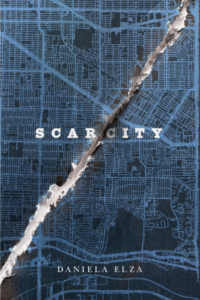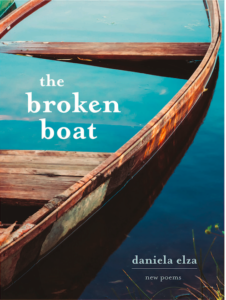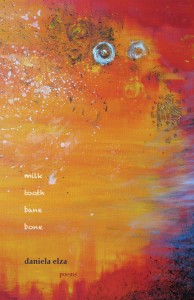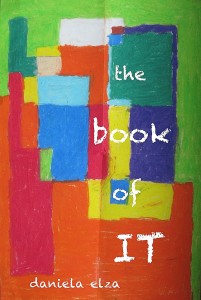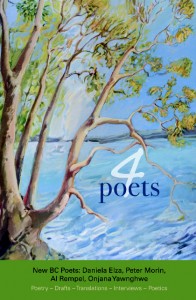are our poems domesticated?
Posted by Daniela Elza on Apr 24 2009
I just started reading Everywhere being is Dancing: Twenty pieces of Thinking by Robert Bringhurst. Yes, if I have not mentioned it before, he is one of my heroes. Or shall I say beacons? Lighthouse? Like Tim Lilburn. Like Gaston Bachelard.
I am so busy reading right now, heading into comprehensives and all, that I will just leave you here with a quote.
Bringhurst says:
Poetry is knowing, but verse is a form, a technique, a device.
then goes on to say (on the next page):
What we hear in many poems is institutional or habitual form: the stride of fixed opinion, not the brief ecstatic dance;
and my favorite part:
Verse in the sense of a measured, repetitive pattern of syllables is scarcely to be found among paleolithic cultures, though poetry there is usually abundant. Peoples who choose not to domesticate plants and animals typically choose not to domesticate language either. The real hunter-gatherers I have known use language with great attentiveness and care, and they craft it with skill and dexterity — but in their oral literature, they typically accept its evolving structures and textures as part of the terrain, like the ways of animals, the growth habits of plants, and the grain of stone and wood. Sentences move like living creatures through the forest of the body and the mountains of the mind. They are snared when the time is ripe, and may be shared whenever the need or excuse arises. A song or story truly heard is a feast enjoyed, a meal consumed, a strength acquired. Language is not a beast to be yoked and harnessed but an independent being whose powers may contradict or amplify one’s own.
This is such a comfort today, when so much of what looks like poetry is not. And some that doesn’t is so much closer.
